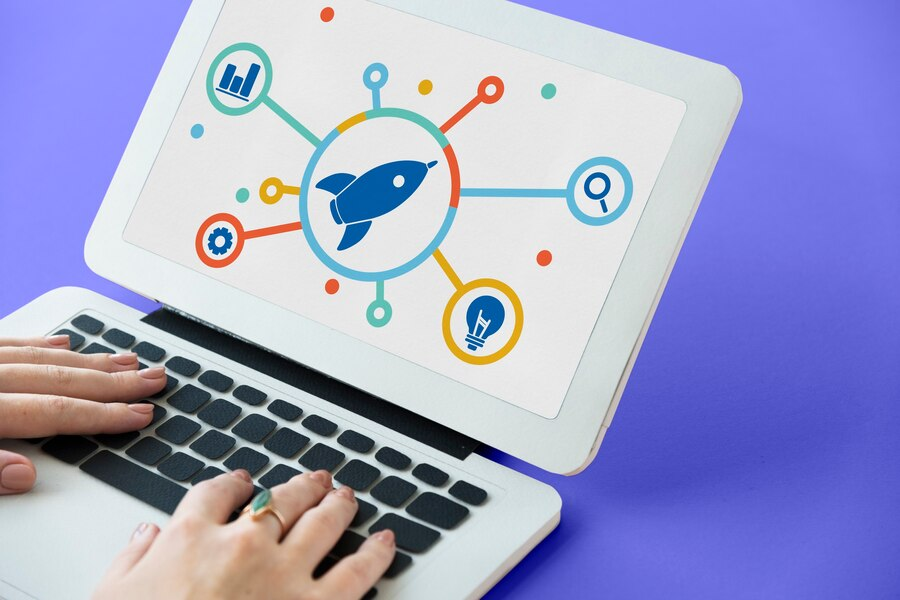Personalized Marketing Campaigns Through AI

In today’s digital age, consumers expect more personalized and relevant interactions from brands. Traditional, one-size-fits-all marketing campaigns often fail to engage audiences, leading to lower conversion rates and customer dissatisfaction. This is where artificial intelligence (AI) comes into play. AI-powered marketing systems enable businesses to create highly personalized campaigns by analyzing customer data and delivering content tailored to individual preferences.

The Role of AI in Marketing Personalization
AI leverages advanced data analytics, machine learning, and natural language processing (NLP) to understand customer behavior and preferences. These insights empower marketers to create targeted campaigns that resonate with specific audience segments. By automating and optimizing content delivery, AI ensures that customers receive messages relevant to their needs, increasing the likelihood of conversion and loyalty.
AI-driven personalization involves three key components:
-
Data Analysis: Gathering and analyzing customer demographics, purchase history, and interaction patterns.
-
Segmentation: Grouping customers based on shared characteristics or behaviors.
-
Content Personalization: Crafting dynamic, tailored messages that speak directly to the recipient’s interests.
Use Case: Dynamic Email Content
Dynamic email content is a prime example of how AI enhances marketing personalization. By analyzing user data, AI systems can tailor the content of promotional emails to match the preferences, behaviors, and needs of individual recipients. Here’s how it works:
-
Personalized Product Recommendations:
AI systems analyze a recipient’s browsing and purchase history to suggest products they are most likely to buy. For instance, if a customer frequently shops for outdoor gear, the email might highlight hiking equipment or seasonal discounts on camping supplies. -
Dynamic Subject Lines:
AI tools optimize subject lines by testing different variations to determine which one resonates most with the recipient. A personalized subject line increases the likelihood of the email being opened. -
Localized Offers:
AI systems use location data to tailor offers based on regional trends or seasonal preferences. For example, a winter jacket promotion might target customers in colder regions, while beachwear is marketed to those in warmer climates. -
Behavior-Based Triggers:
AI can send emails triggered by specific user actions, such as abandoning a shopping cart or browsing a particular product category. These messages often include personalized incentives, like discounts or free shipping, to encourage completion of the purchase. -
A/B Testing and Optimization:
AI automates A/B testing for email content, layouts, and call-to-action buttons, ensuring that the most effective version is delivered to recipients. -
Time Optimization:
By analyzing past email interactions, AI systems determine the optimal time to send emails, ensuring they land in the recipient’s inbox when they are most likely to engage.
Benefits of AI-Powered Personalized Email Campaigns
-
Increased Engagement:
Personalized content grabs the recipient’s attention, leading to higher open rates and click-through rates. -
Improved Conversion Rates:
By delivering relevant offers and recommendations, AI-driven emails are more likely to convert recipients into customers. -
Stronger Customer Relationships:
Tailored messages create a sense of connection and trust, fostering long-term loyalty. -
Time and Cost Efficiency:
AI automates the creation and optimization of email campaigns, saving marketers valuable time and resources. -
Scalability:
AI systems can personalize content for thousands or even millions of recipients simultaneously, making it ideal for large-scale campaigns. -
Data-Driven Insights:
AI provides actionable insights into customer behavior and campaign performance, enabling continuous improvement.
Challenges in Implementing AI-Powered Email Campaigns
While the benefits are clear, implementing AI-driven email personalization comes with challenges:
-
Data Privacy Concerns:
Collecting and using customer data must comply with privacy regulations like GDPR and CCPA to build trust and avoid legal issues. -
Integration Complexity:
Integrating AI tools with existing email marketing platforms and CRM systems can be technically demanding. -
Algorithm Bias:
Poorly trained AI models may produce biased recommendations, leading to irrelevant or ineffective content. -
Over-Personalization Risks:
Excessive personalization may come across as invasive, making customers uncomfortable. -
Dependence on Data Quality:
The effectiveness of AI systems depends on accurate and comprehensive customer data. Incomplete or outdated information can compromise results.
Best Practices for AI-Powered Personalized Email Campaigns
To ensure success with AI-driven email personalization, marketers should follow these best practices:
-
Ensure Data Privacy and Security:
Use secure systems and transparent data policies to protect customer information and build trust. -
Start Small:
Begin with a pilot campaign to test the effectiveness of AI-powered personalization before scaling up. -
Monitor Campaign Performance:
Regularly analyze email metrics, such as open rates, click-through rates, and conversions, to assess effectiveness and refine strategies. -
Combine AI with Human Creativity:
Use AI to generate insights and optimize content, but rely on human creativity to craft compelling messages. -
Educate Customers:
Inform customers about how their data is used to personalize their experience, emphasizing the value it provides.
The Future of AI in Personalized Marketing
The future of AI-powered personalized marketing is promising, with advancements in predictive analytics and machine learning poised to make campaigns even more effective. Emerging technologies like augmented reality (AR) may soon integrate with email marketing, enabling interactive and immersive experiences. Additionally, AI systems will increasingly leverage emotional intelligence to tailor content that resonates with customers on a deeper level.
As AI continues to evolve, it will enable hyper-personalized marketing campaigns that anticipate customer needs before they even articulate them, creating a seamless and intuitive shopping experience.
Conclusion
AI-driven personalization is revolutionizing email marketing by delivering dynamic, tailored content that resonates with individual recipients. By analyzing user demographics, behaviors, and preferences, AI agents craft highly relevant messages that boost engagement, conversion rates, and customer loyalty. While challenges exist, thoughtful implementation and adherence to best practices can help businesses unlock the full potential of AI-powered marketing, paving the way for a future of more meaningful and impactful customer interactions.


Subscribe to follow product news, latest in technology, solutions, and updates
Other articles for you



Let’s build digital products that are simply awesome !
We will get back to you within 24 hours!Go to contact us Please tell us your ideas.
Please tell us your ideas.







